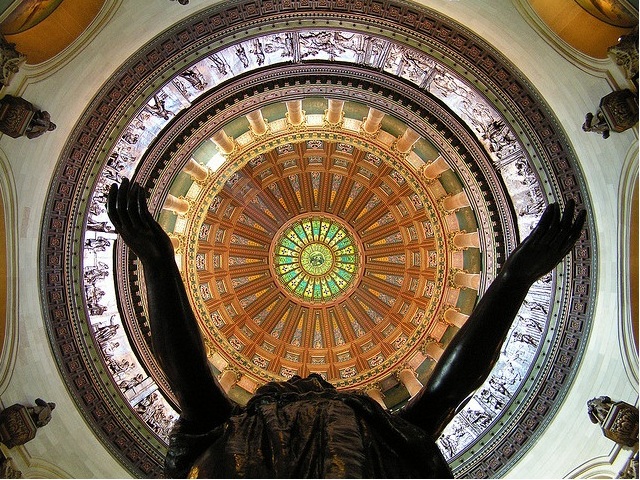Gov. Rauner And Speaker Madigan's First Meeting In 6 Months Goes Nowhere
By aaroncynic in News on Dec 2, 2015 8:00PM
With the Illinois state budget impasse now in its sixth month, Governor Bruce Rauner, House Speaker Michael Madigan and a handful of other legislative leaders sat down to meet—for the first time in more than half a year—and accomplished approximately nothing.
A portion of the meeting, which was scheduled in October and rescheduled last month, was streamed to the public, but the majority happened behind closed doors according to the Sun-Times. The politicians attending the meeting got up, spoke to a pool camera for a few minutes, and then went behind closed doors.
Each side stuck to their standard talking points, with Rauner and his allies again trying to sell the need for his “turnaround agenda,” which includes a property tax freeze, changes to collective bargaining, redistricting and term limits. House Republican leader Jim Durkin, who said there would be enough revenue options for Democrats told the Tribune:
“There needs to be a willingness on behalf of the Democrat leadership to say that those reforms, agenda items the governor has specifically stated, that there needs to be made some progress.”
The State Journal-Register reports Democrats stuck to their well-worn talking points too, with Madigan referring to Rauner’s supposed “reforms” as “campaign issues:”
“They’re being advanced by Gov. Rauner and the Republicans because they feel that the presence of those issues on the ballot in November 2016 will advantage them in the election. I don’t think that they ought to be advancing political party positions relative to a future campaign as part of the budget.”
About the only thing that was accomplished was that there could be more meetings, and the House could potentially vote Wednesday on a bill that would allow local municipalities to collect revenues such as gambling and gasoline taxes that aren’t part of general states funds.
“It was productive,” said Senate President John Cullerton. “I thought the best part was an agreement for future meetings.”
